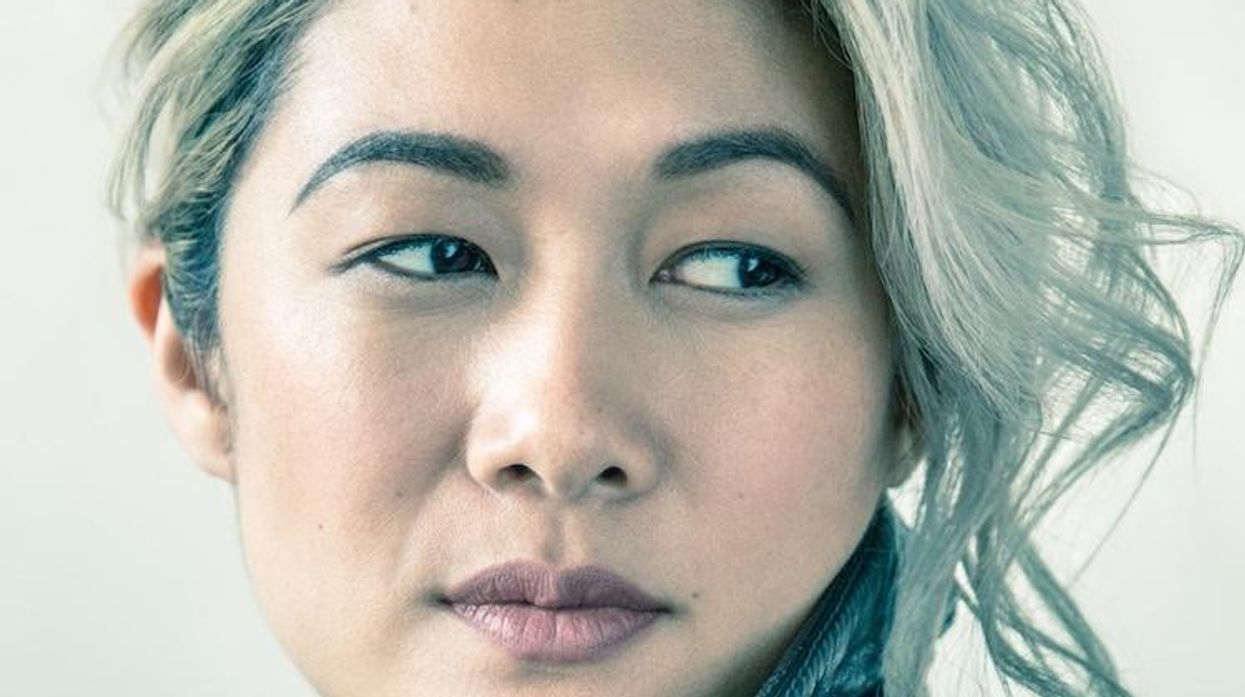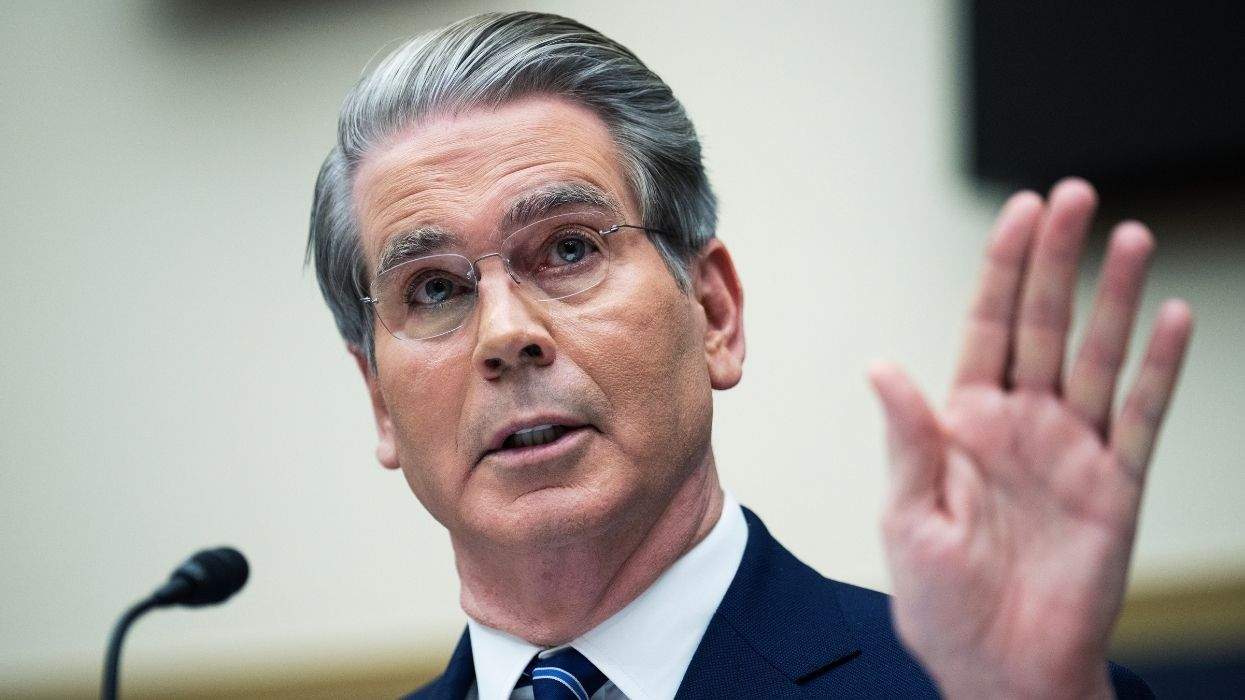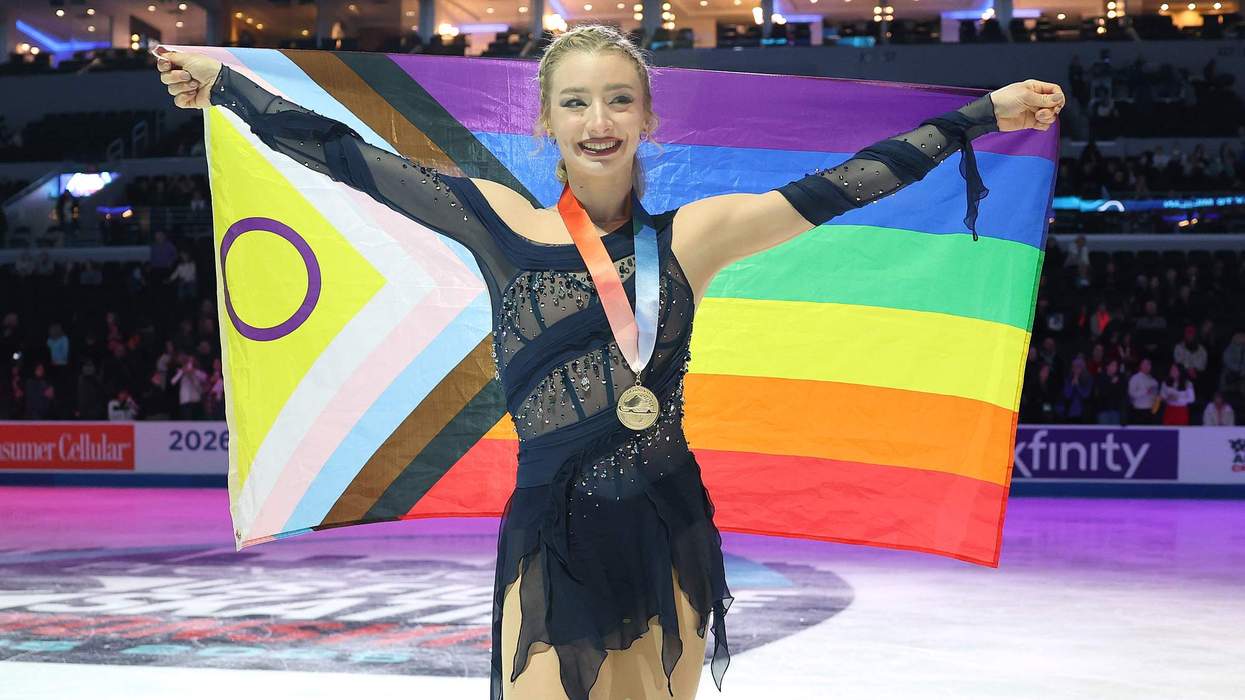Somehow, we've survived a year under the Trump adminstration. It's a bittersweet victory, of course, and bound to be a time of reflection as we prepare for Saturday's second annual Women's March. It's been a year of movements and revelations and, through all of it, one musician has been working tirelessly to provide a sonic anthem to the fire and fury of women's equality. Her name is MILCK and today, she's released an album worth of emotionally resonant songs.
With This Is Not the End, the woman born Connie Lim has cemented her status as one of music's most important voices for the women's movement. If the name sounds familiary, you may remember MILCK from her song "Quiet," which went massively viral last year after she performed it with a choir (in flashmob form) at last year's Women's March on Washington. MILCK went on to sing "Quiet" on Full Frontal with Samantha Bee, in a moment that caused most people I know to shoot tears out of their eyeballs.
Related | All the Info You Need on This Year's Women's March
Last year, the singer's application to perform at the Women's March didn't even get a response. But this year, that's all changed. MILCK will be singing at the 2018 Women's March on New York--and she's even helping to lead the whole thing. After the protest, she'll also be hosting a free "self-love" workshop, where people will be taught how to sing in harmony. We spoke on the phone about the new track, her Samantha Bee experience, and the strength and difficulties of the #MeToo movement.
OUT: Can you tell me about the creation of "This is Not the End?"
MILCK: I wrote it in September 2016. It was before the election--before so many of us had our world views challenged. For me personally, in my own journey, I think I was reaching a point of fatigue. Because that year, I was with a management team that wanted me to be something that I wasn't, and I think I was finally realizing that oh, I need to stop getting into situations where I'm with people who don't truly believe in what I'm doing, and I need to look within myself to find the strength of my own path. So I was in the middle of that, and I didn't quite realize that that was the type of situation I was in. But my instincts were already telling me that I was tired and I needed some encouragement, and I wanted to just give it to myself.
I wrote this with this amazing woman, Adrienne Gonzalez, and I wrote "Quiet" with her as well. Adrienne is LGBT, and she's always had this sense of empathy for me--I was always the black sheep and didn't get along with my family when I was younger, and she really understood those feelings in her own way. So it's been really amazing because we've been learning more about each other as we wrote songs. I think "This Is Not the End" was both of just exerting as much hope as possible during a time where I was starting to feel pretty tired. You know that feeling of being on the brink of burnout? So this came right before the election, and when the election happened I just really couldn't stand by and watch what was happening.
Does the full This is Not the End EP tackle similar themes?
I think yes, because I wrote these songs from a really personal place, and I've been healing from my own past by examining it. Just excavating those feelings and turning them into songs has been really therapeutic. So "Quiet" was one of those moments, and this This is Not the End is a very similar type of feeling. I think I'm exploring power, and how to take it back for myself, and just examining what kind of spaces I can take up, and what kind of spaces I can create for others.
Obviously a huge moment was when you performed "Quiet" on Samantha Bee. Could you tell me about that experience?
It was great. Samantha Bee really had her finger on the pulse. The march was on a Saturday, and so by Sunday I got a phone call from their team saying they'd love to have me on the show. The vibes were so nice, and they seemed really enthusiastic. And when I went to New York to film the show, we could only bring eight singers out of the 25. And that process of choosing who would go was extraordinary to witness. It wasn't catty, and everyone was just encouraging of each other. But what was really cool was that Samantha Bee invited everyone in the choir who couldn't sing to come watch.
Talking to the crew that works for Samantha Bee was really amazing as well. They've all come up together, and they were building the show from the ground up. They were saying that in the beginning, when the show was first starting, they had to go into the streets and try to pull joggers into the show. They had to try to convince people to come, and now they're selling out and there's a high demand for it. As a creator myself, that was cool to hear about.
It was my first time performing on national television, and the first time for the singers as well. We just tried to be really present, and it was a magical experience. They actually put Kleenex in every row of the audience, because Samantha was like "I don't want tears and snot all over my chairs!"
Last year at the Women's March, we were really protesting one man, Trump, who was a sexual assaulter. As this new one approaches, we've been reckoning with the #MeToo movement, which is great, but I think we can all agree that, as women, it's been hard to hear all these stories, and to tell our own. How has it affected you?
When I released "Quiet" in January of 2017, I was sharing my story, and I didn't know that the song would go viral. Of course I thought it would be amazing to go and sing it there, and thought how cool it would be if it became the anthem of the Women's March. I didn't realize it would actually happen. Also, I knew that if I put out a story of my own, I needed to own it and be comfortable with talking about it all the time--but I didn't know what the magnitude would be.
I was sharing my story day after day to different news outlets and different groups of women. And I think about five months into sharing my story and singing my song, I realized that I was starting to get triggered again. And this happens a lot! I'm thankful because I'm teaming up with this organization called the Joyful Heart Foundation (founded by Mariska Hargitay), and they warned me of this. They told me to be prepared to get triggered again. And what my triggering looked like was that negative voice telling me stuff like, "what you went through wasn't even that bad, why are you talking about it." So I was wrestling with this huge sense of guilt, and I didn't want to put it on other people. But once they mentioned that, everything became clear, and I realized that my mind was playing tricks on me, and that I was feeling guilty about what I think is an important part of healing.
As I'm watching other women come forward and tell their stories, it's so empowering, but I also know that it's hard for other women--and men--who aren't ready to talk about their experiences. People have asked me what's a good strategy, and one is trust your gut. If your gut is telling you no, don't share your story, it's not time and I can't listen to this anymore, definitely take a step back. It's totally normal. And I'm starting to think about what the next step is. How do we bring men into this conversation? How do we make this a safe movement? Because I think the mistake of the movement would be to forget the purpose of healing, and focusing too much on villainizing. So that's something that I've been wrapping my head around, and just observing and trying to see--what are the ways to keep this conversation healthy?





























